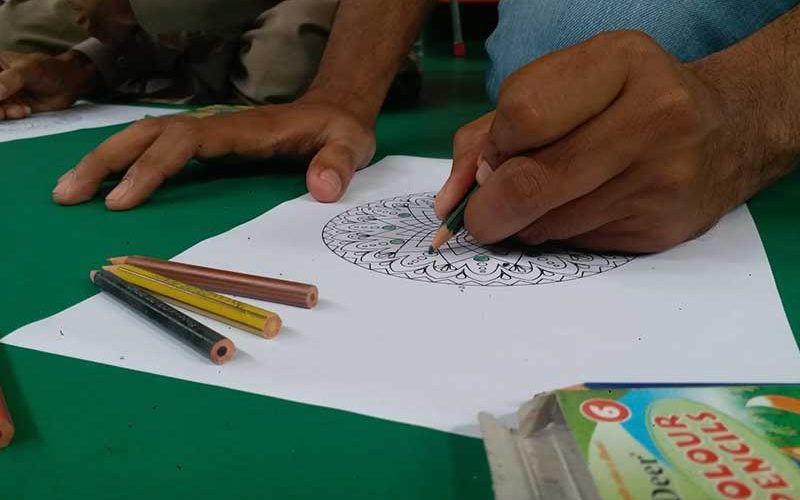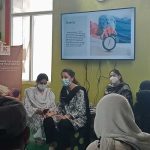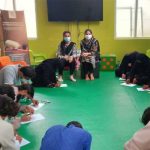
The Indus Hospital, Korangi Campus, hosted a support group session for HIV patients on September 16, 2021, to share the importance of maintaining a healthy lifestyle. Fozia Rajput, Counselor, HIV Department, Anila Hanif, Field Supervisor, HIV department, and Sumera Parveen, Clinical Psychologist from the Psychosocial Team, organized the session.
HIV is a lifelong disease, and despite its difficulties, there is no reason why a patient cannot continue to live an everyday life.
Among the topics discussed, one of the main points was maintaining a balanced sleep schedule with a daily exercise routine. Anila emphasized the importance of taking time out of their day for something as simple as an evening walk. Sleep impacts productivity, emotional balance, brain and heart health, immune function, creativity, vitality, and weight.
Fozia explained the importance of maintaining a healthy diet, as it keeps the immune system strong and helps manage HIV symptoms and complications. Moreover, it also allows patients to process medication and helps manage their side effects.
In addition to keeping themselves healthy physically, the patients were also taught the significance of mental health. Society has stigmatized HIV and its victims as a taboo subject, which affects the numerous people afflicted by this disease. The patients were taught several meditations and breathing exercises to help cope with the stress. Furthermore, they advised the attendees to reach out to support groups provided by the Indus Hospital & Health Network if they felt the pressure building.
Conclusion and Exercises
Upon the conclusion of the presentations, the organizers and audience interacted in a Q&A session. It served as a group therapy session as the patients had the opportunity to express their concerns and difficulties and received encouragement and advice from the doctors and their peers.
The staff went on to demonstrate breathing exercises and meditation for the patients to practice. In addition, they conducted a psychosocial experiment where they asked the patients to paint with different colors and have it posted on the office walls. The patients also interacted in a coloring exercise to help with their mental wellness.




